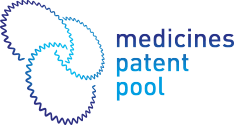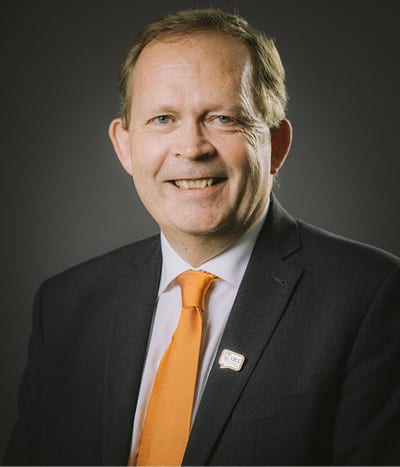Fighting cancer and breaking the global cancer divide by improving access to essential medicines
4 February 2021
– an interview with Dr. Cary Adams, CEO, The Union for International Cancer Control
Cancer is the second leading cause of death globally, accounting for nearly 10 million deaths each year. Today, more than half (65%) of these deaths are happening in the least developed parts of the world. While research and innovation has tremendously advanced the discovery of life-saving cancer treatments, access to these innovations, especially in low- and middle-income countries (LMICs), has not kept pace. On this World Cancer Day (4 February, 2021), we interviewed Dr. Cary Adams, CEO, UICC on how we can advance the fight against cancer by improving access to treatments.
Q: Access to essential cancer medicines – where do we stand?
A: Cancer imposes a huge burden globally. To reduce this high burden and promote greater equality, the World Cancer Declaration calls for improving global access to accurate cancer diagnosis, quality multimodal treatment, rehabilitation, supportive and palliative care services, including the availability of affordable essential medicines and technologies, by 2025.
The World Health Organization (WHO)’s Model list of Essential Medicines (EML) is an initial step in addressing key barriers to effective care. This list serves as a tool to help countries prioritise what is included in their national EML (NEML) for public procurement and reimbursement. In 2015, the Union for International Cancer Control (UICC) played a very important role in the revision of how cancer medicines are included on the WHO EML. The methodology for the selection of essential cancer medicines was revised to propose medicines based on specific regimens for specific cancers. This would make it easier for policymakers to identify cancer medicines relevant for their national disease burden. Disappointingly though, a 2016 analysis of 135 national EMLs globally found that, on average, only 17 out of 25 cancer medicines on the 2013 WHO EML and only 3 out of the 16 additional ones added in 2015 appeared in the national lists. Huge gap thus remains in the listing of key cancer medicines on the WHO EML and their inclusion (and thus procurement) in country lists.
Furthermore, even when essential cancer medicines are included in the WHO EML and national EMLs, their access unfortunately is not guaranteed. The reasons range from the high cost of medicines to quality assurance issues (such as weak regulatory systems) to procurement and supply chain challenges (e.g. stock-outs, lack of adequate health workforce etc.).
Q: How can we address these access barriers? What role can UICC and partners, including MPP, play?
A: Towards addressing these barriers and initiating policy change, UICC works with its members and leverages its advocacy and capacity building platforms to raise awareness nationally and globally. But, the task at hand is herculean and we need to leverage international support and unite all relevant stakeholders. This includes governments, international organisations, civil society and the private sector. The goal is to build effective regulatory systems, sustainable procurement strategies, and policies for transparent and fair pricing, including compliance with TRIPs regulations.
Further, we should also support efforts to facilitate the transfer of technologies and policies to increase the uptake of quality-assured generics/biosimilars, as well as strengthen the capacity of local manufacturers. In this regard, the Medicines Patent Pool (MPP) has played a very important role in increasing access to medicines for communicable diseases (tuberculosis, HIV and hepatitis C) in LMIC. We are very pleased to hear that MPP’s mandate now includes cancer medicines. Applying its access-oriented licensing model to the biological therapies (those included on the WHO EML for cancer) to increase access to biosimilars would be a particularly good step in ensuring that these innovative life-saving treatments are available in LMICs.
Q: What lessons can we learn from other diseases?
A: There are definitely lessons to be learnt from the advocacy conducted around securing affordable and accessible treatment for HIV and hepatitis C. For instance, civil society played a critical role in mobilising support for treatment access, particularly for people living in LMICs as well as vulnerable populations, as part of promoting equity. Likewise, the promotion of equity in access to cancer treatment and care must also be paramount. We know that there is a ‘global cancer divide’ between countries in terms of access to cancer services (including medicines) as well as in terms of outcomes for cancers, especially those that are easily prevented, detected or treated.
Q: Looking ahead, what will be the key drivers to transform access space for cancer?
A: To improve cancer outcomes, it is very important to take a multisectoral approach to the question of treatment access because it touches several interrelated topics. For example, the ability to detect cancer early through either screening or early detection programmes in health facilities, including at primary care level; access to pathology and diagnostic services; then the modalities of cancer treatment that include systemic therapy, immunotherapy, radiotherapy and surgery. Multisectoral collaborations also enable us to share information on barriers to the availability of cancer medicines on the WHO EML, share best practices, pool resources and complement each stakeholder’s strengths for a much wider impact.
It is also essential to adopt a health systems approach to cancer control; with governments making the necessary investments in cancer services and human resources. A range of stakeholders must be engaged in improving access to treatment; including civil society, governments and relevant private sector as all play key roles in access to treatment and care.
Both UICC and MPP are agencies that foster multi-sectoral dialogue and can bring together different actors who are all stakeholders in ensuring access to treatment. For example, access for all patients to timely and quality treatment for cancer, is the responsibility of governments, but at the same time requires the assistance of patient organisations, civil society, the private sector, WHO and the international community. Only through collective engagement can we hope to see the appropriate solutions put in place. One great example is the roll out of the HPV vaccine. UICC and many other stakeholders came together to mobilise action.
Q: Finally, what is your message on this World Cancer Day?
A: Together all of our actions matter. Strong partnerships between public health authorities, NGOs and the private sector will help build more resilient health systems and facilitate sustainable access to essential cancer medicines. This is particularly important in the wake of COVID-19; to make sure that cancer is not forgotten in the response to the pandemic and beyond.






